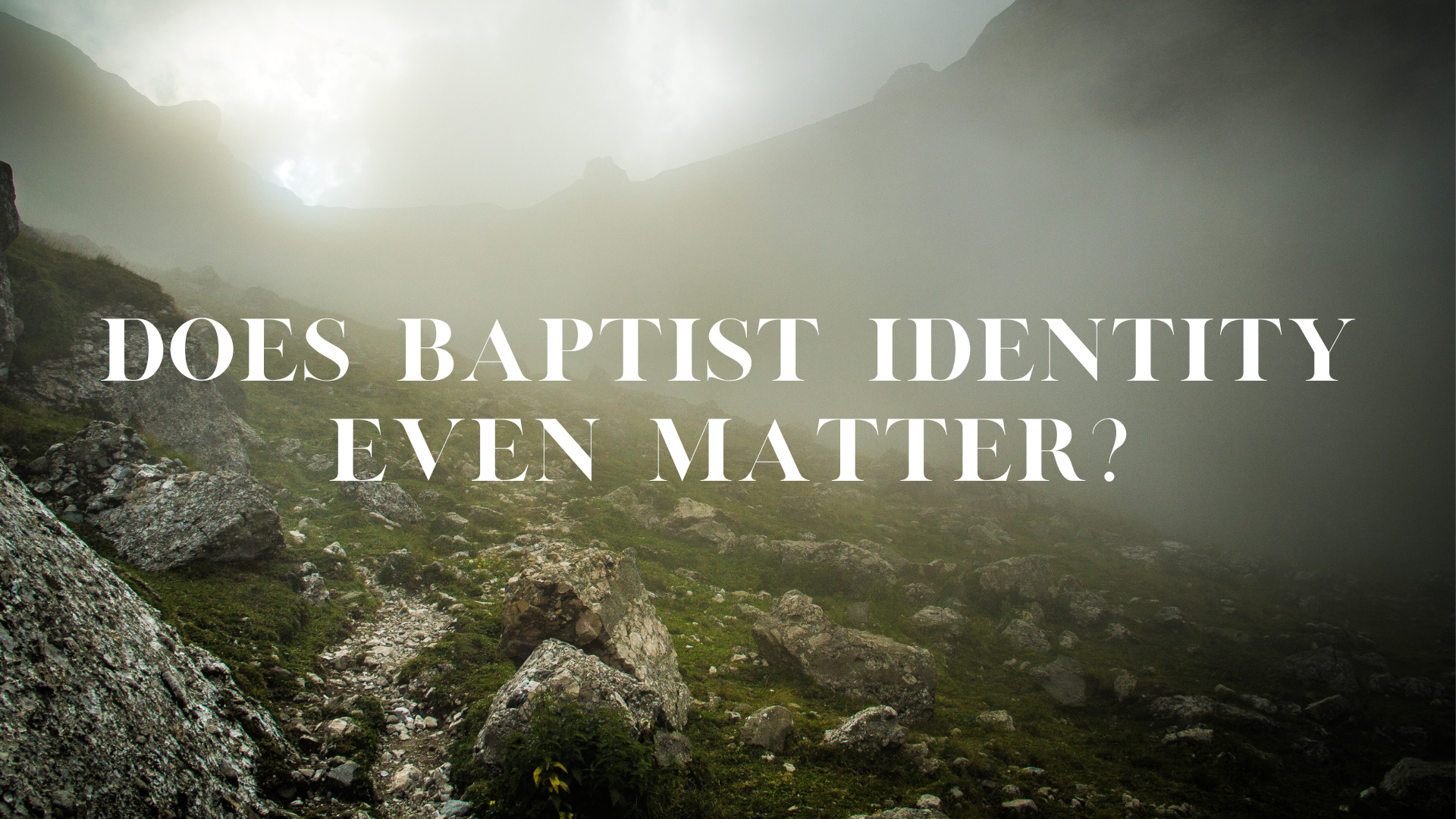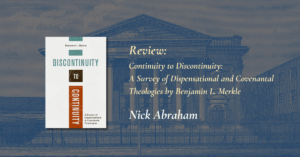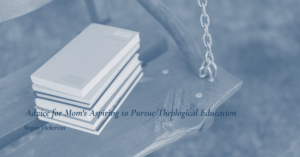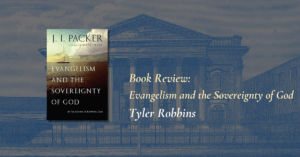When myths are perpetuated for long periods of time, they become, in the minds of many, fact. Among Baptists, there is a longstanding myth that the essence of Baptist identity is the freedom to believe whatever you want as long as you baptize believers by immersion. Some have called this “soul competence” or “soul freedom,” and it is largely an invention of the twentieth century. As Tom Nettles rightly notes, “Instead of seeing liberty of conscience as an implication of new covenant orthodoxy properly conceived, many historians condensed Baptist identity to that single affirmation, along with the right of private interpretation.”[1]
Yet the earliest Baptists were not concerned with private judgment and liberty of conscience as ends in and of themselves. Their primary concern was ecclesiological in nature—they wanted the church to be structured in accordance with the teachings of Scripture. Their defense of liberty of conscience stemmed from their belief that infant baptism and an established church, backed by the power of the magistrate’s sword, did not follow the biblical pattern and would never result in a “New Testament vision of the church.”[2] This represented a radical ecclesiological departure from their paedobaptist counterparts, including the English Separatists, who, though they separated from the Church of England, retained infant baptism. These beliefs regarding the nature of the church are enshrined in the earliest English Baptist confessions, whether General or Particular Baptist.[3]
Baptist usage of confessions developed out of Baptist ecclesiology, as a component of church polity. Confessions protected and promoted biblical orthodoxy and polity by helping to maintain purity, by providing an objective criterion to assess teaching and ministry practice. With a written confession and affirmation of that confession, pastors, teachers, and churches were bound to live within that boundary. However, the nineteenth and twentieth centuries saw Baptists move away from their confessional heritage and identity, as fundamentalist biblicists and Protestant liberals alike elevated personal experience over the centrality of confessions. Ironically, both of these groups held a shared belief that confessions restrained the individual’s freedom to determine doctrine.
The question before us, however, is what makes a Baptist a Baptist? In other words, are there any distinguishing “benchmarks,” to borrow from Timothy George, that mark out Baptists from other Protestants?[4] Is being a Baptist merely an organizational matter or are there markers that have set apart Baptists from the broader Protestant and Evangelical worlds? And even if there are such markers, should Baptists care? We share Timothy George’s concerns from over thirty years ago, when he stated:
There is a crisis in Baptist life today that cannot be resolved by bigger budgets, better programs, or more sophisticated systems of data processing and mass communication. It is a crisis of identity rooted in a fundamental theological failure of nerve. The two major diseases of the contemporary church are spiritual amnesia (we have forgotten who we are) and ecclesiastical myopia (whoever we are, we are glad we are not like “them”). While these maladies are not unique to Baptists, they are perhaps most glaringly present among us.[5]
The Baptist tradition includes diversity, as is demonstrated in various views along the Calvinist/Arminian spectrum with respect to soteriology. However, the various groups in Baptist life have held views that form a Baptist consensus. That consensus declares that Baptists are orthodox, evangelical, ecclesiologically separate, and confessional.[6] Each of these strands forms a part of the Baptist tapestry that has held up for more than four hundred years.
Orthodox
First, Baptists embrace the creedal orthodoxy of the early church by adhering “to the Trinitarian and Christological doctrines formulated by the first four ecumenical councils and expressed in the earliest Christian creeds.”[7] The articles on the Trinity and Christ’s mediatorial work in the Second London Confession and An Orthodox Creed demonstrate how Baptists of differing soteriological conclusions firmly held to these orthodox tenets. Early Baptist confessions reveal that Baptists were more than glad to affirm the orthodox faith. As George explains, “Baptists are orthodox Christians who stand in continuity with the dogmatic consensus of the early church on matters such as the scope of Holy Scripture (canon), the doctrine of God (Trinity), and the person and work of Jesus Christ (Christology).”[8] For Baptists to be good Baptists, it is essential they draw from the dogmatic foundations of the early church as expressed in the first creedal statements. In this way, catholicity is a noble venture for it reminds Baptists that they do not stand in isolation from the rest of the Christian tradition. By returning to the orthodox heritage of the Baptist tradition, modern Baptists will be equipped to stave off a fundamentalist sectarianism as well as liberal innovations that would diminish or remove the thread of Christian orthodoxy.
Evangelical
Second, Baptists are evangelical. Nettles uses the term “evangelical” here to refer to an affirmation of the Five Solas of the Protestant Reformation rather than the typical definition associated with modern evangelicalism. The Baptist confessions of faith in the seventeenth century declare that Scripture alone is the final authority for matters of faith and practice. In understanding the nature of salvation, both General Baptists and Particular Baptists confessed that salvation is all of faith alone in Christ alone due to the grace of God alone. Nettles stresses that Baptists have held to, defended, and taught the “doctrine of justification by faith, the necessity of the work of Christ, and the necessity of the work of the Spirit” placing them within the evangelical, Protestant stream.[9] While the Baptists did not agree with everything written by men like Luther and Calvin, they did embrace the message of the gospel of grace alone in Christ alone, and drew deeply from the Reformers.[10] In fact, they believed they were carrying many tenets of the Protestant Reformation to their biblical, logical conclusions.
Ecclesiologically Separate
Third, Baptist theology can be rightly described as “separate, or a theologically integrated ecclesiology.” By this, Nettles means that Baptist ecclesiology is holistic in the sense that Baptist views on religious liberty (which will be addressed below) are directly informed by a Baptist understanding of the nature of the church. The components for this theologically-integrated ecclesiology are “believers’ baptism by immersion, regenerate church membership, liberty of conscience, separation of church and state, and the necessity of gospel proclamation to all persons in all nations.”[11] Unlike some modern proponents of soul competence or liberty of conscience, the earliest Baptists argued for liberty of conscience and the separation of church because of their ecclesiological convictions.
With this background, Nettles points out two expressions of Baptist ecclesiology that set it apart. First, Baptists are consistent in denying that the civil government has any role whatsoever in the beliefs and practice of the church. While Baptists honored the civil magistrate as long as he acted judiciously in his God-ordained sphere, they rejected any meddling by the magistrate in the affairs of the church. A commitment to the regulative principle meant that the church did not need the state’s sanction or aid. Nettles traces out the connections:
The principle of regenerate church membership…cannot survive a government that aggressively favors and promotes a particular Christian denomination. ‘Liberty of Conscience’ and ‘Separation of Church and State’ address that perversion of relationship. Baptists historically eschew any favored position from the civil authorities as civil authorities.[12]
For early Baptists, when earthly magistrates ruled within the realm of Christ, they inevitably ruled, whether directly or indirectly, in matters of doctrine and practice. This intrusion, they believed, supplanted the New Testament pattern of gathering and governing the church. Furthermore, it kept Christ’s body from pursuing further reform in accordance with the sola Scriptura principle without magisterial consent.
Second, Baptists set forth a positive view of ecclesiology in believing that the preaching of the gospel, believer’s baptism, regenerate church membership, and church discipline are the means by which the purity of the church is maintained. The usage of a church covenant and confession of faith were the means of stating what the church believed and how the church would live. As James Renihan rightly says, “The members of the churches are called out of the world by the present action of God, they entrust themselves to him and to one another, and they agree to function together as a church. The reality of the work of God was exemplified in the visibility of the church.”[13]
One final word concerning the nature of Baptist ecclesiology is needed regarding interdependence and independence. Baptists believed in a free church in a free state. Each church was autonomous, meaning that they alone had the right to set apart men for the ministry, practice church discipline, and order their church in a way that they deemed most biblical. However, their understanding that the authority of a congregation lay in its members was not an argument for total isolation. The pattern of early Baptists in Britain and America was to form voluntary associations that allowed churches to maintain formal interdependence. Associations served as a means of fellowship as well as doctrinal accountability, cooperation for missions, providing counsel for the churches, and supplying pulpits. For too long, Baptists have championed a version of autonomy and independence that would not be recognizable by the majority of Baptists in the past.
Confessional
The fourth and final component of Baptist identity to consider is confessionalism. While Baptists supported and defended the concept of liberty of conscience to guard against the intrusion of the state in matters of religious faith and practice, Baptists affirmed confessionalism as the primary means of safeguarding belief and practice in the life of the church. As George explains, Baptist congregations adopted confessions, “as an expression of our religious liberty, as a statement of our theological convictions, and as a witness of the truths we hold in sacred trust.”[14] Members and ministers were not free agents who could believe or do whatever they wanted. In the seventeenth century, a confession of faith and a church covenant were the first two documents that a church adopted in their formation. In the nineteenth and twentieth centuries, Baptists, both conservative and liberal, railed against the formal and regulative usage of confessions in Baptist life as an imposition on a person’s conscience. This is why Nettles calls the usage of confessions for regulatory and disciplinary purposes “one of the most offensive and misunderstood elements of the historic Baptist witness.”[15] Thus, confessions are used defensively to expose error within churches and associations to safeguard orthodoxy. However, confessions of faith are also used positively to set forth the beliefs of a congregation and create unity.
Stan Norman contends that Baptist identity itself is confessional for it is “comprised of certain theological components” that are essential to Baptist identity.[16] This confessional element in Baptist life can be equated to an actual Baptist theological method. Confessions of faith in Baptist life were not a random collection of propositional truths to serve as a commemoration of years past with no meaning in the present. Confessions of faith exemplify the very essence of Baptist identity in bringing together those truths that set apart a people who are called Baptists. We concur with Norman when he says:
Being “Baptist” is more than just a name. They are known by clearly defined and historically established theological components. Baptists are more than just adherents of religious freedom, advocates of baptism via immersion, or practitioners of congregational polity. They are those individuals and churches that embrace to some degree all the core theological components that have been defined…as common among writings on Baptist distinctives. For a person simply to advocate one or two of the theological components found within the distinctive genre does not designate that person a Baptist. Deviation beyond these identified theological components is a deviation beyond the historically established boundaries that define Baptist distinctives.[17]
Those who have downplayed the confessional heritage of Baptists in the name of preserving some form of Baptist identity actually helped diminish the core of the Baptist theological tradition. By stressing a perverted view of “soul competency” and “liberty of conscience,” some Baptists in the twentieth century pulled one string after another of the Baptist tapestry, turning the beautiful tapestry into a trampled and tattered rug. As Nettles describes it, “The effect of this reductionistic project was to thrust aside the confessional element that gave rise to Baptists as a flowering of Protestantism into a consistent ecclesiology.”[18] Baptist confessionalism unites these strands together, setting forth a cohesive Baptist identity and theological method.
During the Downgrade Controversy that impacted British Baptists in the 1880s, C. H. Spurgeon wondered whether immersion was the only cause of unity among Baptists in his day—was it the only remaining marker of Baptist identity? The same could be asked today. Baptists too often fail to appreciate our heritage. However, it is not enough to admire our past. It is imperative to retrieve it for the present and to equip generations for the future. This essay, as well as this series on Baptist distinctives, aims to show a new generation of Baptists that the old paths, though not perfect, are good. If we would be faithful Baptists today, then we need to know the Baptist way of yesterday so that we may be prepared to face tomorrow. So, yes, Baptist identity matters.
[1] Tom J. Nettles, “Forward” in James M. Renihan, For the Vindication of the Truth: A Brief Exposition of the First London Baptist Confession of Faith (Cape Coral, FL: Founders Press, 2021), xviii.
[2] John Coffey, “Scepticism, Dogmatism and Toleration in Seventeenth-Century England” in Persecution and Pluralism: Calvinists and Religious Minorities in Early Modern Europe 1550–1700, eds. Richard Bonney and D.J.B. Trim (Bern, Switzerland: Peter Lang, 2006), 169.
[3] Helwys’s Confession; First London Confession; A Brief Confession (The Standard Confession); Second London Confession; An Orthodox Creed.
[4] Timothy George, “The Future of Baptist Theology” in Timothy George and David Dockery, eds., Theologians of the Baptist Tradition (Nashville, TN: B&H Publishers, 2001), 5. Recently, Matthew Bingham in Orthodox Radicals: Baptist Identity in the English Revolution (Oxford: Oxford University Press, 2019)argues that early Particular Baptists should be seen more as a subset of Congregationalism and downplays the uniqueness and usage of the term “Baptist” in the seventeenth century. Disagreeing with Bingham’s thesis, Tom Nettles counters that “It took a while for the distinctiveness of the word ‘Baptist” to denote a specific identifiable ecclesiological option, but the reality was present with full implications of liberty of conscience, separation of church and state, and church discipline when that step was taken.” See Tom J. Nettles, “Book Review: Orthodox Radicals: Baptist Identity in the English Revolution,” The Journal of Andrew Fuller Studies No. 2, (February 2021), 100.
[5] George, “The Future of Baptist Theology,” 5.
[6] This list is drawn from Tom Nettles, The Baptists: Key People in Forming Baptist Identity, vol. 1, Beginnings in Britain (Fearn, Scotland: Christian Focus Publications, 2005,) 36–50.
[7] James Leo Garrett, Baptist Theology: A Four-Century Study (Macon, GA: Mercer University Press, 2009), 21.
[8] George, “The Future of Baptist Theology,” 5.
[9] Nettles, The Baptists, 40.
[10] Garrett notes that Baptists received the following from various Reformers: from Luther the understanding of the supremacy of Scripture over tradition, justification by grace through faith alone, and the priesthood of all believers; from Zwingli their understanding of the Lord’s Supper; from Bucer the necessity of church discipline, and from Calvin the understanding of predestination as a major biblical doctrine. Garrett, Baptist Theology: A Four-Century Study, 22.
[11] Nettles, The Baptists, 44.
[12] Nettles, The Baptists, 45.
[13] James M. Renihan, The Practical Ecclesiology of the English Particular Baptists, 1675–1705, (Eugene, OR: Paternoster, 2008), 52.
[14] George, “The Future of Baptist Theology,” 10.
[15] Nettles, The Baptists, 46.
[16] R. Stanton Norman, “Southern Baptist Identity: A Theological Perspective,” in Southern Baptist Identity: An Evangelical Denomination Faces the Future ed. David Dockery, (Wheaton: Crossway, 2009), 61.
[17] Norman, “Southern Baptist Identity,” 61.
[18] Nettles, The Baptists, xviii.
Authors
-

Jesse F. Owens (PhD, The Southern Baptist Theological Seminary) is married to Tiffany, with two sons, and resides in Gallatin, Tennessee, where heserves as pastor of Immanuel Church, and Assistant Professor of Historical and Systematic Theology at Welch College. Before moving to Gallatin, Jesse and Tiffany lived in Nashville where Jesse operated a family-owned landscaping business and ministered at Sylvan Park Church. His academic interests include church history, historical theology, and systematic theology. He has contributed chapters to Trinity, Creed and Confusion: The Salters’ Hall Debates of 1719 (Regent’s Park College, Oxford) and The Promise of Arminian Theology (Randall House Academic) and various journal articles. He also serves as Senior Editor for Baptist Theology with Hanover Press.
View all postsRecent Posts -

Jake Stone (MDiv, The Southern Baptist Theological Seminary) is a native of Gulfport, MS and was in pastoral ministry for over ten years. He is the Associate Librarian at the James P. Boyce Centennial Library at the Southern Baptist Theological Seminary. He is a member of the Reformed Baptist Church of Louisville.
View all postsRecent Posts




